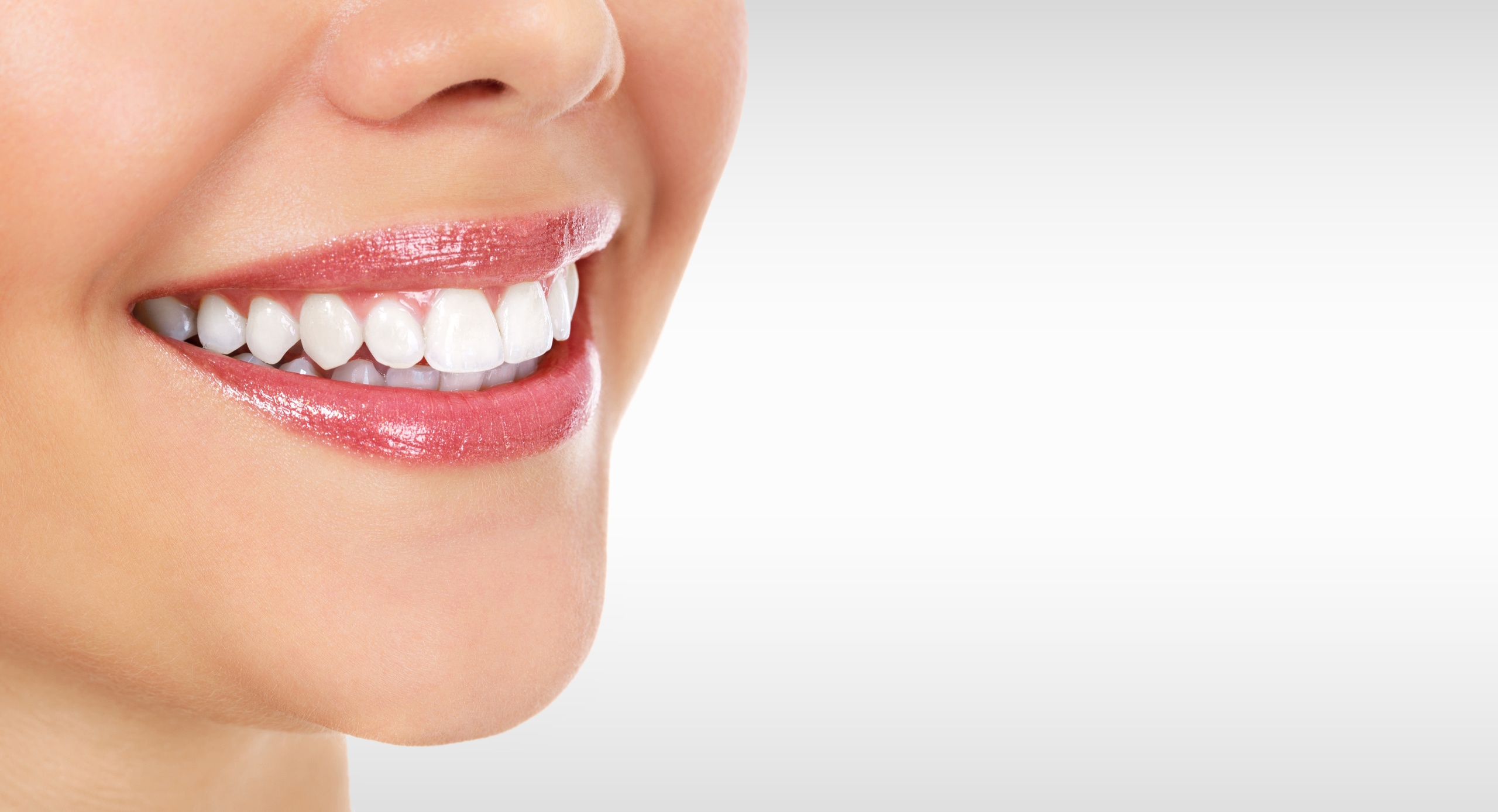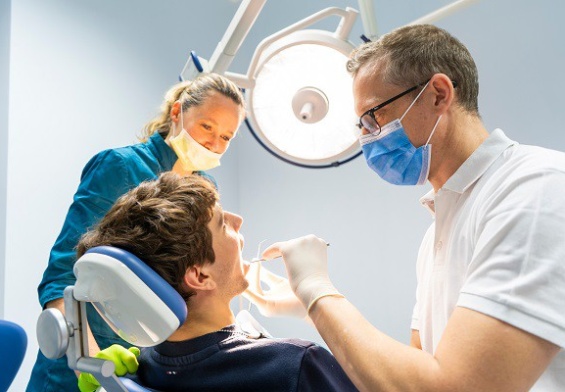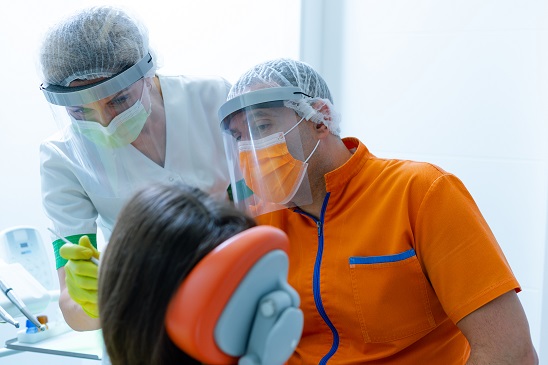Tooth discoloration is a common concern that can severely impact confidence. It’s totally valid to wonder whether they’re just a cosmetic issue, or a sign of a deeper underlying health issue. The answer depends on the root cause of the discoloration, which can be addressed with expert guidance from NJ cosmetic dentists.
Understanding Tooth Discoloration
Teeth stains can result from a variety of causes and are generally categorized into three types. Extrinsic stains affect the enamel, or the outer layer of the teeth, and are commonly caused by external factors such as dark-colored foods and beverages like coffee, tea, and red wine. Smoking and other forms of tobacco use can also cause discoloration, as can poor oral hygiene, which allows the buildup of plaque and tartar.
Intrinsic stains, in contrast, occur beneath the enamel in the dentin layer. These stains tend to be more challenging to address and may result from medications like tetracycline taken during childhood, dental trauma, or excessive fluoride exposure. Fluorosis, a condition caused by consuming too much fluoride during tooth development, frequently results in white or brown spots.
Finally, age-related discoloration occurs as the enamel thins naturally, revealing the yellowish dentin beneath. Over time, this combination of factors often leads to teeth appearing more discolored with age.
Are Stained Teeth Unhealthy?
Discoloration can sometimes signal underlying problems, but not always. For example, brown or black stains can signal decay or cavities, which can compromise tooth structure without treatment. Similarly, gray discoloration might suggest nerve damage or a dead tooth, often resulting from trauma or untreated decay. White spots are frequently a sign of demineralization, an early stage of enamel erosion, which can progress to cavities if it’s not dealt with.
Even when staining is just cosmetic, it can affect mental well-being and self-confidence. Someone with a discolored smile might feel self-conscious or avoid social situations, so cosmetic dentistry presents solutions for restoring their appearance and confidence.
Preventing Tooth Stains
Consistent oral hygiene practices play a huge role in preventing tooth stains. Dentists emphasize brushing at least twice a day with fluoride toothpaste to strengthen enamel and prevent plaque buildup. Flossing daily is just as important, as it removes debris and plaque from areas a toothbrush can’t reach. Regular dental cleanings remove surface stains and tartar, helping keep teeth bright and healthy.
Lifestyle habits also help prevent discoloration. Consuming less of the foods and drinks known to stain teeth, like coffee, tea, and red wine, can help minimize discoloration. Rinsing the mouth with water or brushing soon after consuming these items also limits their impact. Smoking and other forms of tobacco use are major contributors to tooth discoloration, so you should consider quitting for cosmetic and overall health reasons.
Another helpful habit is eating crunchy fruits and vegetables like apples and carrots, which promote saliva production and naturally cleanse the teeth. Staying hydrated by drinking water throughout the day also helps rinse away particles that contribute to stains.
Options for Treating Discolored Teeth
If regular oral hygiene practices don’t resolve discoloration, there are several ways NJ cosmetic dentists can help:
- Professional Teeth Whitening
Concentrated bleaching agents applied under the supervision of a dentist can effectively address extrinsic stains caused by food, drinks, or smoking. In-office treatments often provide immediate results, while take-home kits allow for gradual whitening over several weeks. - Dental Veneers
Veneers are a durable, long-lasting option for individuals with deep intrinsic stains or widespread discoloration. These custom-made, porcelain shells cover the front surface of the teeth, masking imperfections while adding a protective layer. - Dental Bonding
An affordable alternative to veneers, bonding uses a tooth-colored resin to mask discoloration and repair minor flaws. While not as durable as veneers, bonding is an excellent solution for isolated stains or small cosmetic concerns.
Routine professional cleanings also help maintain oral health and prevent surface stains from progressing into deeper issues. Regular visits to a cosmetic dentist in New Jersey help them keep an eye on any changes in tooth color and address them promptly.
When to Consult a Dentist
If tooth discoloration is accompanied by symptoms such as sensitivity, bad breath, pain, or bleeding gums, seek professional advice immediately. These signs could indicate more serious conditions like cavities, gum disease, or infection, all of which require intervention. NJ cosmetic dentists identify whether discoloration is purely aesthetic or linked to an oral health issue, ensuring appropriate care.
Even if discoloration is only cosmetic, consulting a dentist can provide solutions that enhance your smile and boost your confidence. A professional evaluation ensures that any underlying issues are addressed before pursuing cosmetic treatments.
Your Partner in Oral Health and Beauty
Stains on your teeth don’t have to diminish your confidence or quality of life. Whether you’re interested in professional teeth whitening, veneers, or tips for maintaining a bright smile, NJ cosmetic dentists offer personalized solutions tailored to your needs. Addressing discoloration and other dental concerns with expert guidance will leave you with a smile that reflects both health and beauty.
Don’t wait to achieve the smile you’ve always wanted. Schedule a consultation with an NJ cosmetic dentist today to start your journey toward brighter, healthier teeth.
Resources:
https://my.clevelandclinic.org/health/symptoms/10958-tooth-discoloration




